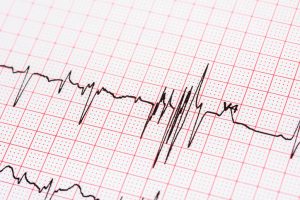
Lead author Jared W. Magnani said, “Particularly in older adults, we need to be mindful that the effects of atrial fibrillation (AFib or AF) go beyond increasing the risk of heart failure and stroke. We learned from this study that older adults with AFib are especially vulnerable to losing strength, balance, gait speed, and coordination.”
The researchers examined physical performance of seniors at ages 70, 74, 78, and 82 among 2,753 participants. At the beginning of the study, all participants were able to live independently.
The comparison of changes that took place over the four-year study period between atrial fibrillation patients and those without the condition uncovered the following:
- Overall performance declined with age, but this was expected.
- Those diagnosed with atrial fibrillation had a greater decline in physical performance.
- On average, patients with atrial fibrillation completed a 400-meter walk 20 seconds slower than those without atrial fibrillation.
- The decline in physical function among atrial fibrillation patients was equivalent to an extra four years of aging.
Magnani added, “Small declines in physical performance in older adults may have big consequences. The declines that we observed in participants with AFib are associated with increased frailty, which can result in loss of independence, decreased mobility, poorer quality of life, institutionalization, and death. There may be other factors, such as inflammation or accelerated muscle loss, that contribute to both increased risk of AFib and declining physical performance.”
Complications of atrial fibrillation
There are two main complications that can result from atrial fibrillation: blood clots and congestive heart failure. Blood clots form when the blood cannot flow freely in the arteries. Congestive heart failure occurs when the heart is unable to beat properly, so it becomes weaker over time. Symptoms of heart failure include fatigue, shortness of breath, and fluid retention.
Patients with irregular heartbeat also face a higher risk of stroke. Over 70 percent of atrial fibrillation patients who have a stroke will die, as the irregular heart rhythm disrupts regular blood flow, potentially leading to a blood clot and thus contributing to a higher risk of stroke.
Other complications related to atrial fibrillation include a higher risk for dementia and Alzheimer’s disease, as uncovered by previous studies.
Preventing atrial fibrillation complications in elderly
To better prevent atrial fibrillation complications, it’s important that you maintain a healthy weight, lose weight if you are overweight, exercise regularly, manage high blood pressure and cholesterol, eat a heart-healthy diet, limit alcohol and caffeine, don’t smoke, and always remember to take your medications as prescribed.